The research component of the programme ‘Kinesiology of Monostructural, Polystructural and Conventional Sports’ will involve modelling of athletes’ competitive performance and preparation processes. These two areas are explicitly interdisciplinary and their study will be underpinned by scientific disciplines such as social and natural science, humanism, technical science and medicine. In the world, development of methods and technologies for planning, monitoring and diagnosing athletes’ transformation processes has intensified. The role of kinesiological science is to generate new relevant information and apply it in the process of training athletes at various quality and age levels. So far the programme team, under the auspices of the Institute of Kinesiology and the Institute of Sport at the Faculty of Sport in Ljubljana, has developed some new methodological approaches to the modelling of an athlete’s potential performance and transformation processes in selected sports, which have also been presented internationally at many congresses and symposiums. Some new approaches, methods and technologies have already been transposed in the athletes’ training process. Thus, we have primarily improved the diagnostic processes for establishing athletes’ potential competitive performance and efficiency of various training methods. The future development of the efficiency model and the programming of athletes’ training processes will increasingly depend on the quality of technologies and procedures for establishing motor, morphological, biomechanical, neurophysiological, biochemical, psychological and sociological factors and parameters. Specialists from various expert and scientific fields will participate in this. Reducing the level of contingency and other coincidental factors is very important in sports practice – particularly in Slovenian sports where the biological potential of quality athletes is relatively low. Sport – in its broadest social meaning – and elite sport are undoubtedly two highly important elements in maintaining and developing a national identity and cultural originality (Kovač, 2006). Some Slovenian top sports are highly competitive on the international scale. Slovenian athletes win medals at the major and most important competitions such as the Olympic Games and the world and European championships (Iztok Čop, Luka Špik, Primož Kozmus, Matic Osovnikar, Petra Majdič, Aljaž Pegan, Mitja Petkovšek, Marija Šestak, Brigita Langerholc, Miran Vodovnik and others). There is a great danger that this segment of sport will be unable to keep pace with development in developed countries if it fails to receive appropriate professional and scientific support. Today, sport achievements, particularly top ones, are no longer a result of enthusiasm, contingent factors and improvisation, but are buttressed by scientific findings, expert knowledge as well as new training methods and technologies. The object of research in kinesiology, in the field of movement culture, is man. Every human motor behaviour can be evaluated exactly in space and time terms with appropriate measuring procedures and methods. Different modalities of movement can be defined on the basis of morphological characteristics, anatomical and functional characteristics, biomotor abilities, skills and knowledge, psychosocial aspects and biomechanical characteristics. Therefore, the phenomena of movement and sport must be defined from the point of a holistic anthropological approach. The principal aim of kinesiology is to describe and explain the movement culture concept as well as demonstrate its significance in improving the quality of life of each individual and of the society as a whole. The Faculty of Sport plays a central role in the sport science national programme in Slovenia. Its key responsibility is to apply scientific work methods to systematically explore the phenomenon of sport, which is much more than merely an aggregate of athletes’ results. Sport is a cultural and sociological phenomenon with all value attributes.
In terms of organisation and contents, the programme team’s work will be divided into sub-projects which will be led by the designated team members.
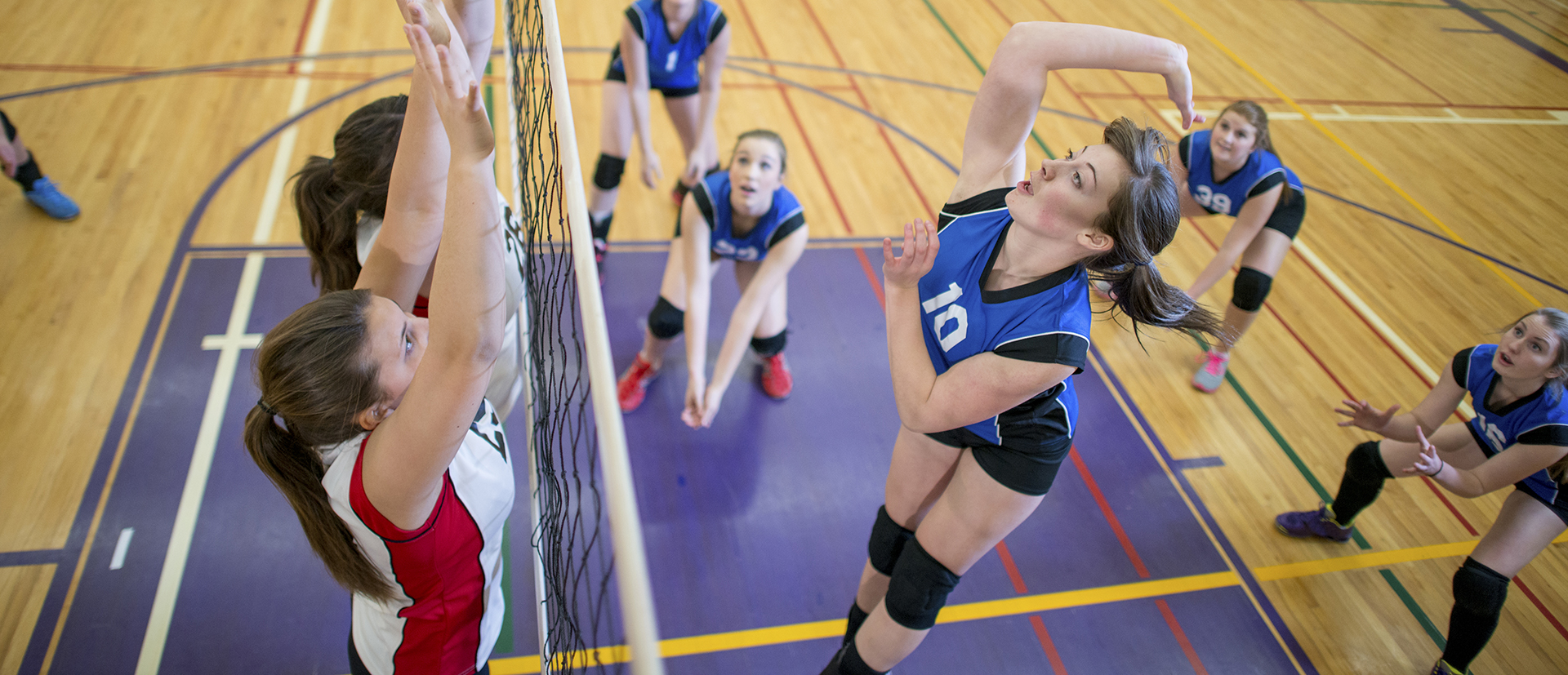







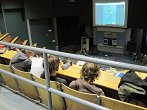

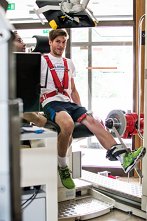


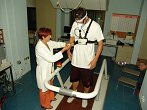






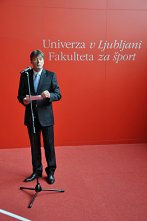

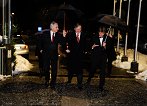





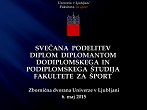
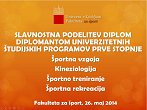





.png)